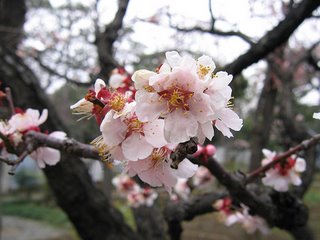There’s a movement afoot—at least among those who practice what’s known as “integrative medicine”—to focus on maintaining a state of optimal health rather than simply alleviating symptoms or treating a particular disease. These docs, nurses, and other health practitioners want us to be truly mindful of how we choose to nourish ourselves with food, activity, rest, and connections with others. In other words, what are we doing to keep from getting sick in the first place? That’s the question we need to ask ourselves every day, moment to moment, contends psychologist Jon Kabat-Zinn, founding director of the University of Massachusetts Medical School’s Center for Mindfulness in Medicine.
Studies have shown that mindfulness, a form of meditation in which you disengage yourself from strong beliefs, thoughts, and emotions, has a positive effect on brain function, lowering the stress response and increasing feelings of relaxation and well-being. It involves being truly present, even during those simple, mundane activities like washing dishes. It can remind you of the “reality of impermanence,” Kabat-Zinn writes in his bestselling book Full Catastrophe Living. “Here you are doing the dishes again. How many times have you done the dishes? How many more times will you do them in your life? What is this activity we call doing the dishes? Who is doing them? Why?”
At last week’s Institute of Medicine conference on integrative health, he outlined five strategies for using mindfulness to improve one’s health and achieve wellness.
1. Consider what‘s right with you. “Until you stop breathing, there’s more right with you than wrong with you,” says Kabat-Zinn. Every day, take a moment to thank your eyes for seeing, your liver for functioning, your feet for carrying you from place to place. Heck, thank those mitochondria within your cells for pumping out the energy you need to get you out of bed in the morning.
2. Love yourself unconditionally. Hate yourself for being 40 pounds overweight? Those berating thoughts you have about your imperfections can actually derail you instead of motivating you into action. (It’s that old story: Starve yourself as punishment for overeating, until you can’t take it anymore and give in to a binge.) Rather than setting a weight-loss goal and promising to love yourself once you get there, Kabat-Zinn says you need to make an effort to love yourself “all the way,” whether you’re 300 pounds or 150. If you decide to eat smaller portions or give up chips for carrot sticks, simply tell yourself, “This is just the way I’m eating now as a way to live better.”
3. Live in the present moment. Don’t think about what you ate yesterday or make promises to exercise tomorrow. “Every moment gives you the ability to learn, grow, and change,” explains Kabat-Zinn. “If you can take a moment and live as if it really mattered, you can take a step back and see those impulses that may be negative to your health.” What’s more, you’ll truly enjoy those indulgences like the creamy feel of a Godiva truffle or a 10-minute shoulder massage at an airport kiosk when your flight is delayed. You can also take pleasure in those small interactions with others: with the doorman, greeting you in your office lobby; the lady in line ahead of you at the supermarket; the goodnight hug from yourchild.

Our Gong Meditation Timer's exquisite sounds summon your consciousness out of your meditative state with a series of subtle gongs
4. When life gets tough, don‘t take it personally. When faced with job loss, a foreclosure, or an impending divorce, it’s really hard not to place the blame squarely on your own shoulders and get stuck in the “if only” mind-set. If only I had (choose one): taken a different job, bought a cheaper house, not cheated. That sort of rumination sets you up for full-blown depression. While it’s important to accept responsibility for your actions, the best way to do that is by looking to the present rather than the past. What are you going to do that’s different right now, at this moment, to move forward? “When the proverbial stuff hits the proverbial fan, it’s really important to recognize and acknowledge the fear you’re feeling,” says Kabat-Zinn. “But also recognize that it’s in these trying times that you will understand fully what it means to be human, to utilize all the resources you have.” After all, it’s those challenges faced by the World War II generation that earned it the distinction of being called the “greatest.”

